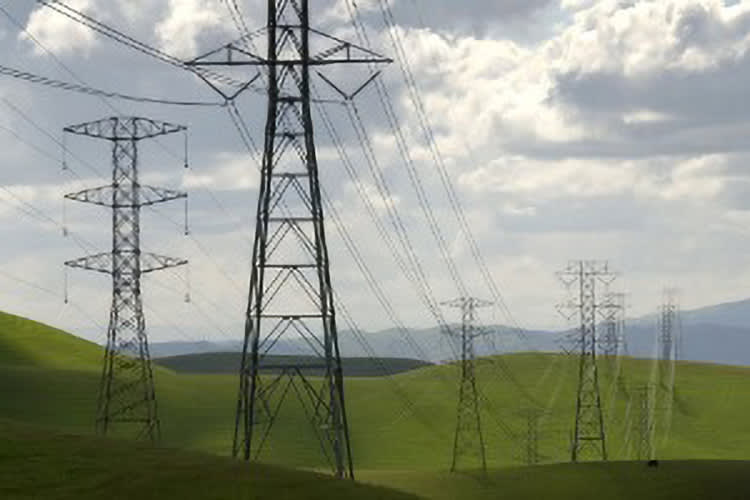
On Utility Scam Awareness Day, PG&E Wants to Help Customers Recognize and Avoid Utility Scams
By Jason King
’Tis the season for increasingly sophisticated scams targeting consumers, including utility customers. As the holiday season gets underway, PG&E is joining Utilities United Against Scams to help customers recognize potential scams as part of Utility Scam Awareness Day on Nov. 15.
During a time when many Californians are occupied with preparations for the holiday season, scammers are working to exploit unsuspecting customers with sophisticated tactics aimed at stealing their money. While many are aware of the potential for online shopping scams, the same danger exists for utility bill scams, where scammers will demand payment to prevent immediate disconnection, typically by telephone but also online or in person.
Reports of scams targeting PG&E customers have been at an all-time high throughout 2023. In fact, there have been over 37,000 reports year-to-date with customer losses of over $700,000, and an average loss of $816. And, the holiday season provides scammers with a prime opportunity to take advantage of customers’ distraction and anxiety.
“Scammers are opportunistic and will exploit times when people are busier than normal and potentially stressed, and they do not take the holidays off. Stress and distraction create a window of opportunity where people are also more likely to fall victim to a scam,” said Matt Foley, lead scam investigator for PG&E. “Remember, PG&E will not contact you for the first time within one hour of service disconnection, and we will NEVER request payment by a pre-paid debit card or via online payment services like Zelle or Venmo.”
Another new tactic that scammers are using is search engine scams, where they create fake sponsored utility payment pages on search engines like Google to trick customers.
Customers who wish to pay their utility bill online should be sure to only visit the website listed on their utility bill. For PG&E customers that is www.pge.com.
“Utility impostor scammers continue to grow more sophisticated in their tactics. Increasingly, we are seeing scammers use digital methods that target both younger and older generations. We encourage customers to stop and verify any unusual utility company requests before making a payment, regardless of whether the customer is contacted via phone, internet, or in person,” said UUAS Executive Director Monica Martinez.
Signs of a potential scam
- Threat to disconnect: Scammers may aggressively demand immediate payment for an alleged past due bill.
- Request for immediate payment: Scammers may instruct the customer to purchase a prepaid card then call them back supposedly to make a bill payment.
- Request for prepaid card: When the customer calls back, the caller asks the customer for the prepaid card’s number, which grants the scammer instant access to the card’s funds.
- Refund or rebate offers: Scammers may say that your utility company overbilled you and owes you a refund, or that you are entitled to a rebate.
How customers can protect themselves
Customers will never be asked by PG&E to specifically purchase a prepaid card to avoid service disconnection or shutoff, a tactic often used in scam attempts. PG&E does not specify how customers should make a bill payment and offers a variety of ways to pay a bill, including accepting payments online, by phone, automatic bank draft, mail or in person.
If a scammer threatens immediate disconnection or shutoff of service without prior notification, customers should hang up the phone, delete the email, or shut the door and report this incident to PG&E at www.pge.com/scams. Customers with delinquent accounts will be contacted by PG&E with an advance disconnection notification, typically by mail, and included with their regular monthly bill.
Signing up for an online account at pge.com is another safeguard. Not only can customers log in to check their balance and payment history, they can sign up for recurring payments, paperless billing and helpful alerts.
Scammers Impersonating Trusted Phone Numbers: Scammers are now able to create authentic-looking 800 numbers which appear on your phone display. If called back, the numbers do not lead back to PG&E. If a customer has doubts about the authenticity of the call, they should hangup and call PG&E at 1-833-500-SCAM. If customers ever feel that they are in physical danger, they should call 911.
Customers who suspect that they have been victims of fraud, or who feel threatened during
contact with a scammer, should contact local law enforcement. The Federal Trade Commission’s website is also a good source of information about how to protect personal information.
For more information about scams, visit pge.com/scams or consumer.ftc.org.
TOP STORIES
-
 PG&E Encouraging Eligible Customers To Sign Up for Monthly Energy Discount Program
PG&E Encouraging Eligible Customers To Sign Up for Monthly Energy Discount Program -
 PG&E Bolsters Safety by Implementing and Evolving Wildfire Mitigation Measures
PG&E Bolsters Safety by Implementing and Evolving Wildfire Mitigation Measures -
 'Climate Positive’ by 2050: PG&E’s New Climate Strategy Report Outlines Targets and Milestones on Path to Net Zero Emissions and Beyond
'Climate Positive’ by 2050: PG&E’s New Climate Strategy Report Outlines Targets and Milestones on Path to Net Zero Emissions and Beyond -
 As California’s Traditional Fire Season Starts, PG&E Turns on Enhanced Powerline Safety Settings Across All High Fire-Risk Areas
As California’s Traditional Fire Season Starts, PG&E Turns on Enhanced Powerline Safety Settings Across All High Fire-Risk Areas -
 Collaborating for a Clean Energy Future: California’s First 100% Renewable Multi-Customer Microgrid Is Now Operational
Collaborating for a Clean Energy Future: California’s First 100% Renewable Multi-Customer Microgrid Is Now Operational